The Clone Wars: Season Five In Review: Part Four
In Parts One, Two, and Three of the Season Five in Review, we examined the five story arcs in this season of The Clone Wars and the fate of its principal protagonist, Ahsoka Tano. In this conclusion to our discussion, we look back on the The Clone Wars television series and look ahead to its legacy for the Star Wars franchise.
Shortly after “The Wrong Jedi” aired, we learned that not only was it the season finale, but the series finale episode. Knowing that now, do you think it serves as a fitting conclusion to the five seasons of The Clone Wars?
Tricia: I’ve always thought the show had six seasons of story to tell, maximum. Children’s shows grow out of their audience. Although at times The Clone Wars seemed to be trying to grow up with its audience, maybe too quickly. As I said in Part 3, the show hit its stride with fan appeal once it transitioned from an anthology to a character-driven series, and the character who drove the story was Ahsoka. We could only gain a better understanding of Anakin, Obi-Wan, Yoda and the Emperor, and there was never going to be an emotional or external resolution for them. Considering the setting in the timeline – the Clone Wars – and what happens to Anakin and the Jedi Order, from the beginning it seemed likely that Ahsoka’s external resolution would be tragic: either her death or her fall to the dark side. Instead the creative team managed to pull off an emotional resolution that, while sad, proves Ahsoka grew into a better Jedi. 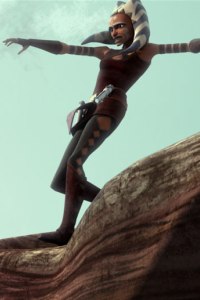 Not to mention the matter of her fate – AHSOKA LIVES! In his interview with RebelForce Radio, Dave Filoni states Ahsoka lives to fight another day, and this is the best-case scenario in my mind. So yes, this was a fitting conclusion.
Not to mention the matter of her fate – AHSOKA LIVES! In his interview with RebelForce Radio, Dave Filoni states Ahsoka lives to fight another day, and this is the best-case scenario in my mind. So yes, this was a fitting conclusion.
Lex: The series finale had to be Ahsoka’s fate. The Clone Wars began with her becoming Anakin’s Padawan in the theatrical release that kicked off the show, and it ended with her moving past being his apprentice. The symmetry is perfect. At some level I wish she could have officially become a Jedi Knight, just for what it would have said about her character’s progression, but that would have made it pretty difficult for the Jedi Council to deny Anakin the rank of Master in Revenge of the Sith. And it’s certainly better for Ahsoka’s future – avoiding Order 66! – for her to have left the Jedi Order. I agree that’s the best-case scenario for Ahsoka, and not the one I thought the show would take.
Megan: This was a very symbolic ending. Ahsoka’s fate was the big question, even more so than the questions the show brought up about the nature of the Force. I don’t know whether the Ahsoka arc was intended to be the end of the series all along or if things like the Clovis arc are placed chronologically afterward, but Ahsoka was the face of The Clone Wars. She was the only hero character who appears only in the show, and it’s fitting that as Anakin taking a Padawan started The Clone Wars, Ahsoka leaving the Jedi Order ended it.
I’m not sure how the show could have gone on without her – which is a strange thing to say for someone who thought she was unnecessary all along, but she became an important part of the way the writers handled the show. She’s an addition to the dynamic between Obi-Wan and Anakin, and a young female face who is meant to be relatable for the fans. She was a focus, and the show would have had to change drastically without her, so this was an appropriate ending. It was also the most emotionally engaging arc ever, if only because we’ve spent five years with Ahsoka and many more with the Jedi.
Although apparently a small amount of bonus content will be released in the future, it seems likely that open questions about a number of characters and plotlines will not directly be resolved onscreen. Did The Clone Wars end too soon, with too many stories left to tell? Or do you like the idea of leaving some answers to the fans’ imaginations?
Tricia: It’s interesting to watch the unfolding discussion among fans who want more of the show. The movies introduced any number of characters and then left those characters’ stories open – Dengar, IG-88, Barriss, Bossk, Aurra Sing… The list could go on and on. Some of those characters’ stories were fleshed out in the Expanded Universe, some in The Clone Wars. Tacking on Cad Bane’s fate, more Asajj Ventress, or even a peek at Ahsoka in her new life would have returned the show to an anthology and severed the emotional thread.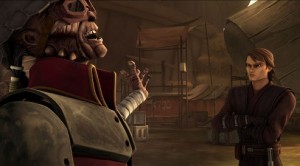
Honestly, I believe much of the fan outcry comes from a place of attachment to the show’s team and the characters. It’s similar to how you see people respond to an unexpected loss of a loved one. Shock turns to anger and denial, and can get stuck there. The fans had no time to prepare, and therefore the cancellation hit them hard. Ultimately there were probably sound reasons financially, and for the brand, to resolve this show when they did.
Having been in the position of being a fan who has reacted to some Star Wars stories by feeling they just didn’t answer all the questions I had or didn’t go the direction I thought they should, I’ve found that using my imagination to write helps me deal with those emotions. And I encourage fans to channel emotional energy like that into something productive. Nothing is preventing any fan from imagining Cad Bane’s fate or the adventures of Ventress and Tano.
Lex: The only character whose story I feel shortchanged about is Captain Rex. He was introduced in the theatrical release along with Ahsoka, and he has journeyed through The Clone Wars right there with her and Anakin. And while he was a secondary character, he definitely had character development of his own over the course of the series. In the Umbara arc we got a brief appearance from Commander Appo, who leads the 501st attack on the Jedi Temple behind Darth Vader – an acknowledgement that something happens to Rex between now and then. In my view, Rex is an important enough character that he deserved resolution.
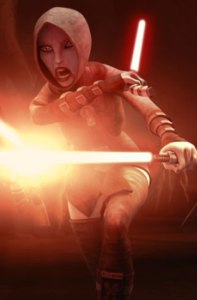 On the other characters, though, I’m fine with open-ended fates. Ventress is a great character, and now she’s available for use in future stories rather than being killed off. Cad Bane is a vivid and memorable character, but he appears in fewer than 10% of the episodes. Embo is great fun, too, but he’s in barely 5%. Same with characters like Lux Bonteri or Mother Talzin. It’s much more fun for fans to imagine the fates of these characters for themselves, rather than the series tying up every single loose end just to complete wiki entries.
On the other characters, though, I’m fine with open-ended fates. Ventress is a great character, and now she’s available for use in future stories rather than being killed off. Cad Bane is a vivid and memorable character, but he appears in fewer than 10% of the episodes. Embo is great fun, too, but he’s in barely 5%. Same with characters like Lux Bonteri or Mother Talzin. It’s much more fun for fans to imagine the fates of these characters for themselves, rather than the series tying up every single loose end just to complete wiki entries.
Megan: I really kriffing want to know what happened to Darth Maul. To bring him back as an event, then put him basically back in his place as Sidious’ apprentice except in a galaxy that we know will soon see Order 66, and never explaining his role in that Order, is like taking candy from a child.
While I didn’t particularly like Mortis, I also feel like that was supposed to have galaxy-shaking ramifications and then was entirely forgotten. I’m idly curious about what happens to Riyo Chuchi and Hondo Ohnaka, and I’m glad that Ventress is still alive and pretty much in the same place she was in the comics – on nobody’s side and unkillable. On the whole I don’t mind that the show ended where it did, though. There are still plenty of stories to tell in other eras of the Star Wars universe.
Looking back over the five seasons of The Clone Wars, what are your favorite episodes or moments from the series, and why?
Tricia: Do I have to pick? My high points would be the Krell arc, the Nightsisters, the concluding arc, and pretty much anything with Obi-Wan. The best of the best was the Mortis arc. I’ve raved plenty on what those episodes accomplished by way of fleshing out Lucas’ Force philosophy, but now when you look back at Ahsoka’s vision of her future self and her being infused with the Daughter’s spirit at the end, it makes the trip to Mortis all the more powerful within The Clone Wars’ saga. Personally, I do wish we’d been able to watch what else they had planned for Mortis, because it had been brought up that we would see more. Perhaps, though, we will see it in future shows, movies, or books.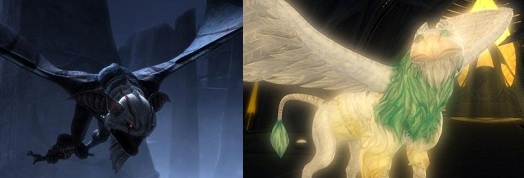
Lex: I agree about the Mortis and Nightsisters arcs, definitely. The Maul arc this season also was visually stunning and provided some interesting elaboration on the nature of the Sith, the Jedi, and the parties stuck in between.
I also have a soft spot for several of the one-off episodes: “Bombad Jedi,” with its great action-heroine Padmé and a well-used Jar Jar; “Assassin,” which has wonderfully written bonding between Ahsoka and Padmé; and “Shadow Warrior,” where we see that Padmé is ultimately a lot more like Anakin in her choices than she usually lets on.
Megan: One of my favorite episodes for fight scenes and art (Giancarlo Volpe!), and also Kit Fisto, is “Lair of Grievous” from way back when. I also really enjoyed “Assassin,” the Krell arc, and all of the Nightsisters and Nightbrothers episodes.
Over its five year run, The Clone Wars added more than forty hours to the onscreen Star Wars saga. What do you think will be the greatest lasting legacy of the series?
Tricia: Undoubtedly it’s that somewhere along the way, fans grew to love and root for a female character that many of them didn’t even want initially, some because she was a girl and others because of the continuity implications. 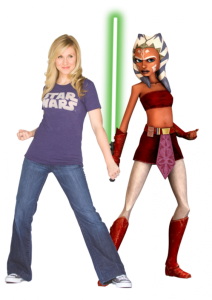 The takeaway for me is that sometimes we as a fandom balk at new ideas or change, but that we need to have a little faith.
The takeaway for me is that sometimes we as a fandom balk at new ideas or change, but that we need to have a little faith.
Lex: I can’t argue with the impact of Ahsoka on the franchise and the fandom. I also think The Clone Wars as a whole will be remembered as a prominent reminder of the important principle that “Star Wars is for everyone.” Kids who were introduced to Star Wars by the show loved it; adults who grew up on the Original Trilogy loved it. People who were generally less than enthusiastic about the Prequel films or era came around on The Clone Wars, too. The show had fun episodes and serious episodes, humor and tragedy, war and politics, action and adventure, and even a bit of romance and definitely some banter. With lots more Star Wars on the horizon, including the Sequel Trilogy, making sure Star Wars is for everyone is as important as ever.
Megan: There are fans for whom The Clone Wars is “their” Star Wars, which I think sets it apart from other shows like Droids and Ewoks which had lower production values and, to my knowledge, didn’t gather a fan base like the adventures of beloved characters like Ahsoka and Anakin did in The Clone Wars.
Perhaps the greatest legacy will be Ahsoka herself. The ratio of male teenage heroes to female teenage heroes in this sort of role, with Ahsoka being Robin to Anakin’s Batman, is very skewed. Her existence was, at least, a test to see whether that sort of character could work, and she was immensely popular. I hope that when people start praising Episode VII’s female lead, The Clone Wars fans can say that the show paved the way.
Last week a fan-made tribute video for The Clone Wars, urging Disney to reconsider cancelling the series, made the rounds of social media. Although I’ve already shared my perspective on the cancellation, the video is a great reminder of the powerful emotional storytelling beats and the many great characters the show created. The Clone Wars inspired others to create pieces of art, like the video below. High praise indeed.
- Hyperspace Theories: SKELETON CREW Ahoy! - December 29, 2024
- Hyperspace Theories: WICKED Part I Rises to the Moment - December 6, 2024
- Columbia’s Vader™ Collection Launches Dec 5 - November 27, 2024









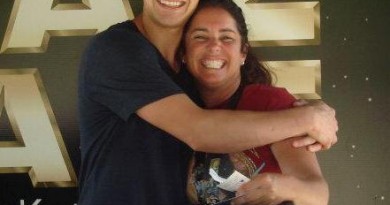
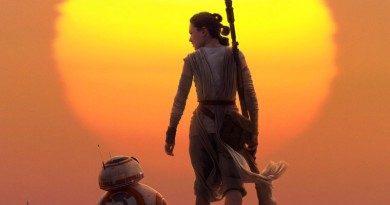
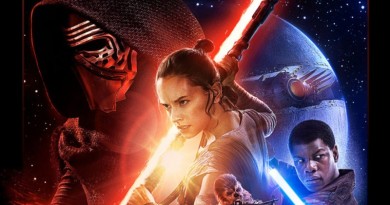
great blog. I was stunned by the ending of the show and still disagree with it: not so much that I didn’t expect it to end soon, but I expected a few more things wrapped up. And I’m appalled and the creative team being let go. To me, the thing to do would’ve been have at least a TV movie to wrap up the fate of Rex and Darth Maul. Most of the other characters didn’t have an ‘implied’ storyline coming up. Obi-Wan is in for enough grief without Maul floating around! And losing Rex (somehow) is bound to have an impact on Anakin.